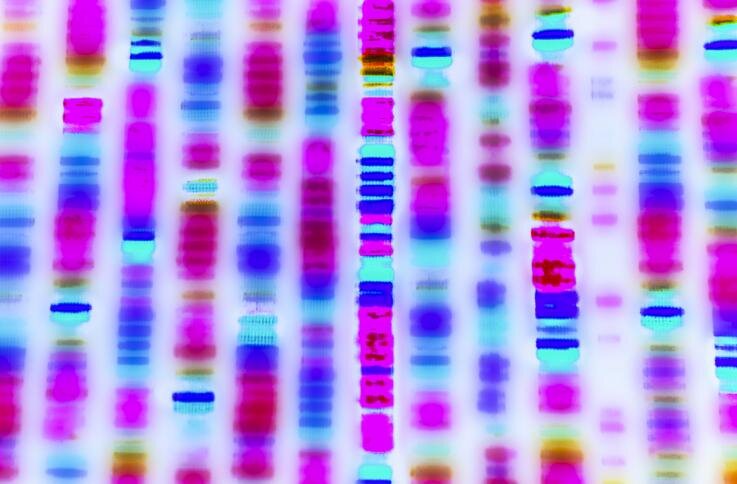Scientists discover 2 rare genes linked with Alzheimer's
by Kashmira Gander for Newsweek:Scientists have identified two rare genetic variants associated with Alzheimer’s disease.The researchers studied the DNA sequences of 5,617 people with Alzheimer’s disease, alongside 4,594 people who did not have the neurodegenerative disorder and acted as the control group.The variants found in two patients with cognitive impairments included a mutation in the NOTCH3 gene. Mutations in this gene have previously been linked to a rare disease known as cerebral autosomaldominant arteriopathy with subcortical infarcts and leukoencephalopathy (CADASIL). Sufferers experience severe headaches and strokes in early adulthood, before developing vascular dementia generally between the ages of 40 to 55, “which is well before typical Alzheimer's occurs,” corresponding author Dr. Lindsay Farrer, chief of the Biomedical Genetics division at Boston University School of Medicine, told Newsweek.Four participants had the TREM2 mutation called Q33X, which is thought to trigger Nasu-Hakola disease. This type of early-onset dementia causes bone cysts that often lead to fractures: particularly in the hands and feet."This dementia occurs when a person has a double dose of this particular mutation, whereas the Alzheimer cases we identified had only a single dose," said Farrer.The findings were published in the journal JAMA Network Open. The authors wrote: “Different mutations in the same gene or variable dose of a mutation may be associated with result in distinct dementias. These findings suggest that minor differences in the structure or amount of protein may be associated with in different clinical outcomes."Farrer said she hopes the study will lead to tests that could predict an individual’s risk for developing Alzheimer’s disease, and to develop treatments. That could help the 50 million people around the world who have dementia, the neurodegenerative condition of which Alzheimer’s disease is the most common. There is currently no cure for Alzheimer's disease, and scientists do not know its cause.“The carriers of the NOTCH3 mutation are unrelated but the mutation in all of them appears to be descended from a common ancestor. Further study of the genetic background of these subjects revealed that they are likely to be Ashkenazi Jewish, i.e. Jews from Eastern Europe," said Farrer.Dr. Keith Fargo, director of scientific programs and outreach at the Alzheimer's Association, told Newsweek he was most surprised by the NOTCH3 finding.“NOTCH3 is thought of as being primarily active during the early development of the nervous system, and its involvement in Alzheimer’s disease risk suggests early events can leave you with a long-term susceptibility to developing the disease. This begs the question: What if Alzheimer’s is a disease of development as much as it is a disease of aging?”Fargo argued the study was limited because the sample size was relatively small, meaning statistical significance could not be established. Another downfall was that the participants could be more closely related genetically than assumed by researchers.“If this is the case, it is possible that the variants are more indicative of their relatedness rather than being responsible for Alzheimer’s," he said.However, he said the findings were important "because each new rare genetic variant provides something of a 'natural experiment'—each provides a window into the possible underlying mechanisms and pathways that lead to Alzheimer’s disease. Understanding these mechanisms and pathways may lead to new drug targets for prevention or treatment."Dr. Sara Imarisio, head of research at the charity Alzheimer’s Research UK, told Newsweek: “This study adds to previous observations that rare errors in a single gene can have very different effects on disease, and some are more common in particular population groups. While the findings contribute to the bigger picture on genetic risk, the study wasn’t large enough to give robust information. The findings now need confirming in larger studies.”Imarisio highlighted an individual’s risk of developing Alzheimer’s disease comes down to a "complex mix of age, genetics and lifestyle."The research was published the same week as a separate study involving 94,437 people with Alzheimer’s disease revealed five genetic variants that could raise the risk of developing the condition. The study was published in Nature.Source: https://www.newsweek.com/alzheimers-disease-scientists-discover-two-rare-genes-linked-condition-1378661

